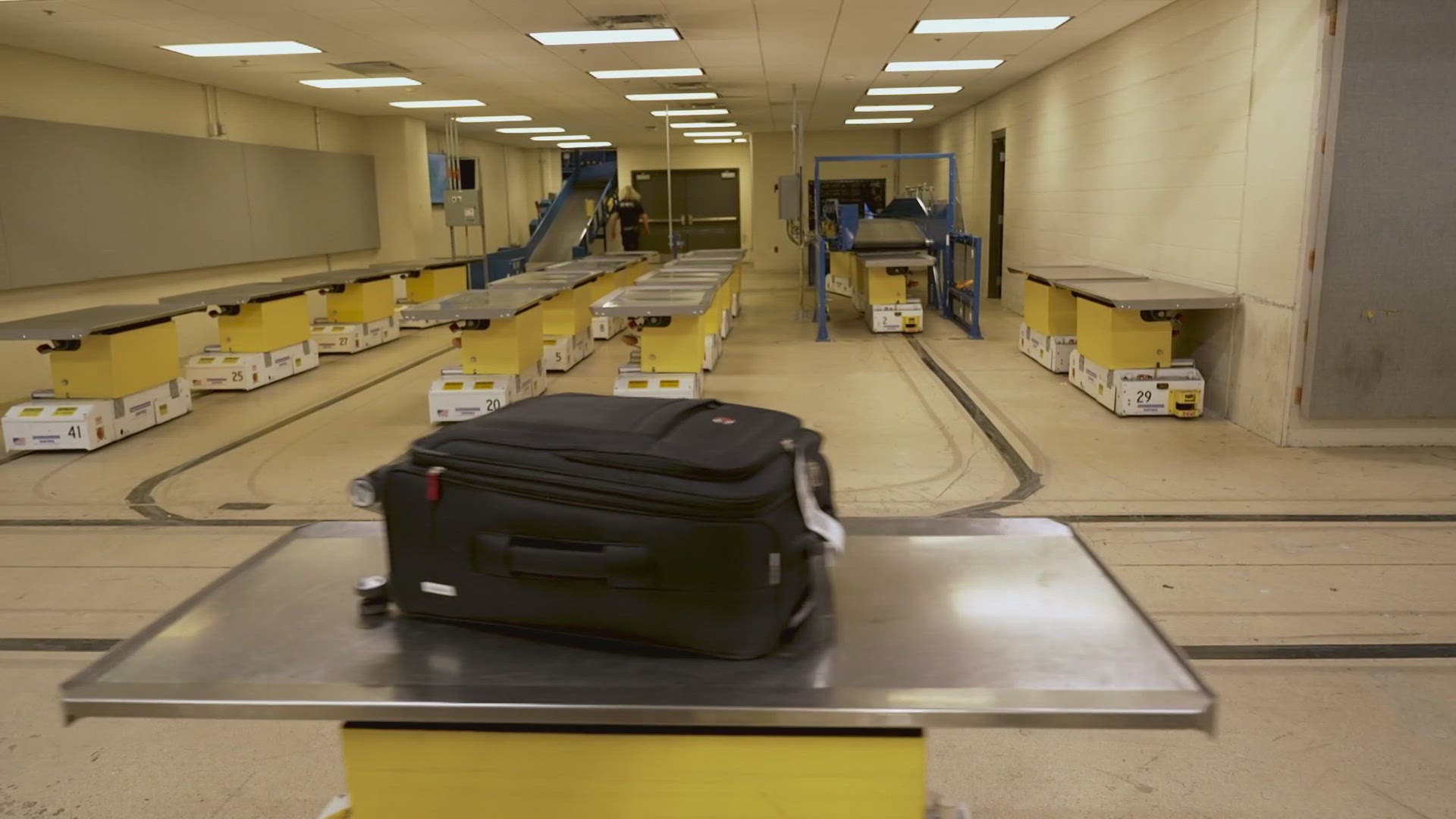DALLAS — When Southwest Airlines announced major changes Thursday, many faithful fliers breathed a sigh of relief: The airline's popular "two bags fly free" policy is safe -- for now, at least.
But at Southwest's home airport it means updates to the Love Field master plan will need to accommodate checked bags in addition to record-breaking numbers of passengers.
"The airport as a whole is reaching capacity," said Amy Williams, the Love Field TSA Federal Security Director. "The growth at Dallas Love Field has been unprecedented."
On the average day, the TSA said it scans from 10,000 to 15,000 checked bags -- and with the number of passengers breaking records (expected to exceed 11 million by 2028) -- the number of checked bags will go up too.
"If a family of four can travel free with eight pieces of luggage, then they’re going to do so," Williams said.
In the underbelly of the airport, Williams showed off the TSA's "state-of-the-art" checked baggage handling system.
Most luggage clears the security screening and is ready to be loaded onto planes before passengers make it through the checkpoint -- it only takes bags an average of about 8 to 10 minutes.
All checked luggage passes through an X-ray scanner, bags that are then flagged by TSA personnel are shifted into an extra scanning area where automated trolleys take individual bags to agents who inspect individual bags.
The airport's latest master plan update includes adding two more luggage carousels, increasing the security area by 12,000 feet and add 3,600 parking stalls.
It also calls for adding additional checked luggage apparatus at the point past the security checkpoint where TSA agents are hard at work screening bags.
But even with the changes -- which will take years to implement -- there's likely no fix for one problem agents encounter with checked baggage: overpacking.
"A lot of times bags will come through here overpacked and that zipper is screaming," Williams said. "In some cases the zipper breaks apart without us even touching the bag."

